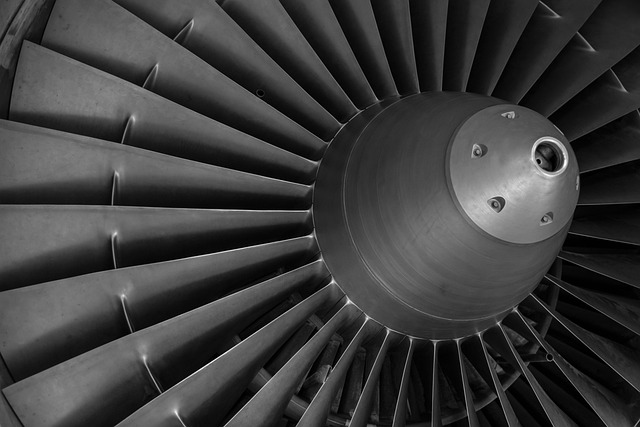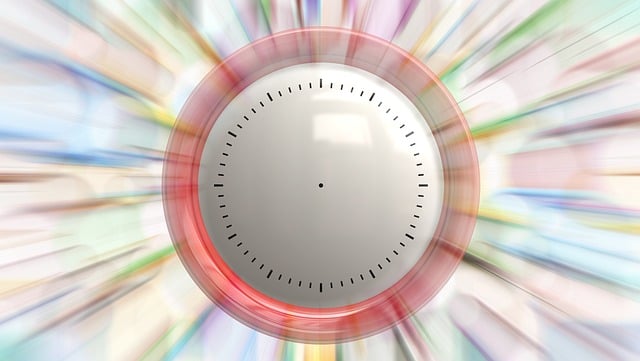Advanced technologies like sensors, drones, and data analytics are driving environmentally friendly changes in agriculture, irrigation, and chemical spraying, boosting profitability and preserving ecological balance. Data centers adopt green energy sources like solar and wind power for optimized efficiency. The tech industry shifts towards eco-friendly materials and designs, minimizing waste while maintaining performance. Digital solutions transform waste management through real-time monitoring, predictive analytics, and enhanced sorting, promoting a circular economy and reducing environmental impact.
“Unleash the power of advanced technology for a greener, more precise future. This article explores innovative approaches where precision meets sustainability. From sustainable practices in agriculture enhancing crop yields while preserving the environment, to eco-friendly materials revolutionizing high-tech equipment, we delve into green energy solutions for data centers and digital waste management systems. Discover how these advancements contribute to an environmentally friendly transformation.”
- Sustainable Practices in Precision Agriculture
- Green Energy for Accurate Data Centers
- Eco-Friendly Materials for High-Tech Equipment
- Digital Solutions for Efficient Waste Management
Sustainable Practices in Precision Agriculture

Precision agriculture, powered by advanced technology, is not only transforming farming practices but also embracing sustainable methods that benefit both farmers and the environment. By utilizing sensors, drones, and data analytics, farmers can now target their inputs—such as water, fertilizers, and pesticides—with incredible accuracy. This environmentally friendly approach minimizes waste, reduces chemical runoffs into nearby waters, and lowers greenhouse gas emissions.
For instance, smart irrigation systems monitor soil moisture levels and weather forecasts to deliver just the right amount of water when needed. Similarly, precision spraying technologies apply chemicals only where they are required, reducing over-application by up to 90%. These sustainable practices not only promote ecological balance but also enhance farm profitability through cost savings and reduced environmental impact.
Green Energy for Accurate Data Centers

Data centers are often energy-intensive, contributing to environmental concerns. However, embracing green energy sources offers a sustainable solution while enhancing precision in operations. By powering data centers with renewable energy, such as solar or wind power, organizations can reduce their carbon footprint and gain a competitive edge. This shift to environmentally friendly practices ensures that the vast amounts of energy required for data processing do not come at the cost of ecological damage.
The integration of green energy provides an opportunity to optimize cooling systems and overall efficiency within data centers. With advanced technology, these facilities can now utilize precise temperature control mechanisms, ensuring optimal conditions for servers while minimizing energy waste. This approach aligns with global efforts to promote sustainability, demonstrating a commitment to both technological advancement and environmental preservation.
Eco-Friendly Materials for High-Tech Equipment

In the pursuit of precision and innovation, the tech industry is increasingly turning to eco-friendly materials to create high-tech equipment. This shift reflects a growing awareness of the environmental impact of traditional manufacturing processes and a commitment to sustainability. Materials like recycled plastics, biodegradable composites, and renewable energy sources are being integrated into the design and production of advanced technology, reducing carbon footprints and minimizing waste.
These environmentally friendly alternatives offer not only benefits for the planet but also for product longevity. Many eco-friendly materials boast superior durability and performance characteristics, ensuring that high-tech devices can be both technologically advanced and ecologically conscious. This dual approach is vital in achieving a future where technology progresses without compromising our natural resources.
Digital Solutions for Efficient Waste Management

In today’s digital era, advanced technology is revolutionizing waste management practices, leading to more efficient and environmentally friendly solutions. Smart sensors and IoT (Internet of Things) devices are being integrated into waste collection systems, enabling real-time monitoring and data analytics. These innovations allow for optimized routes, reducing fuel consumption and carbon emissions.
For instance, digital platforms can predict waste generation patterns based on historical data and local events, ensuring efficient collection schedules. This precision reduces the need for excessive truck deployments, minimizing traffic disruptions and the overall environmental footprint. Additionally, these systems facilitate better sorting and recycling processes by providing insights into material composition, promoting a circular economy and reducing landfill waste.
